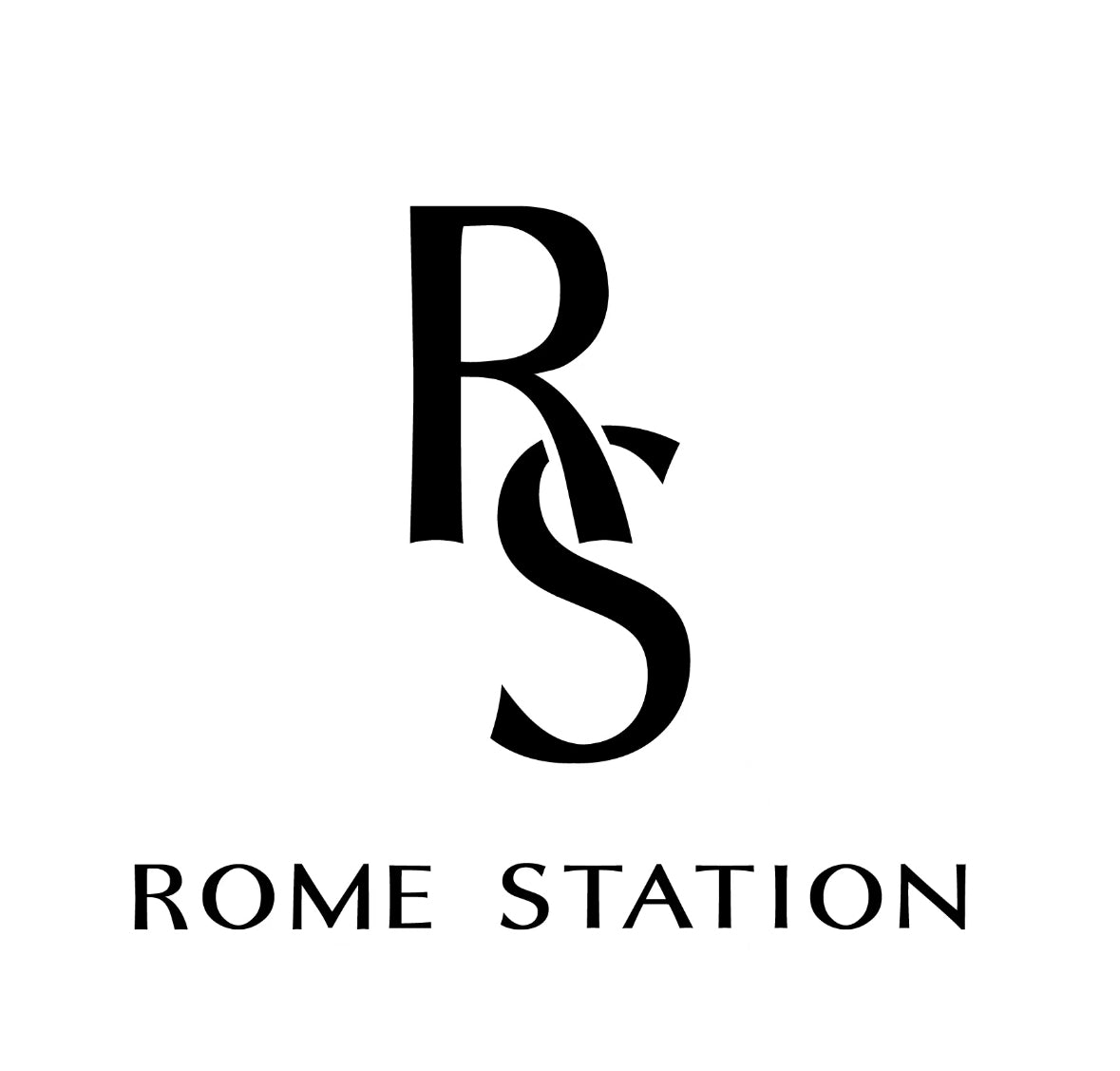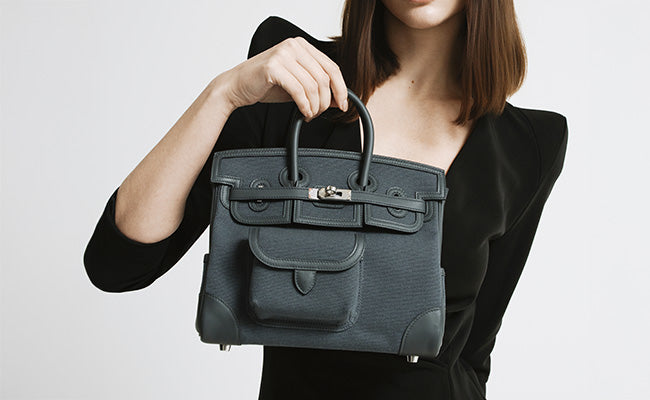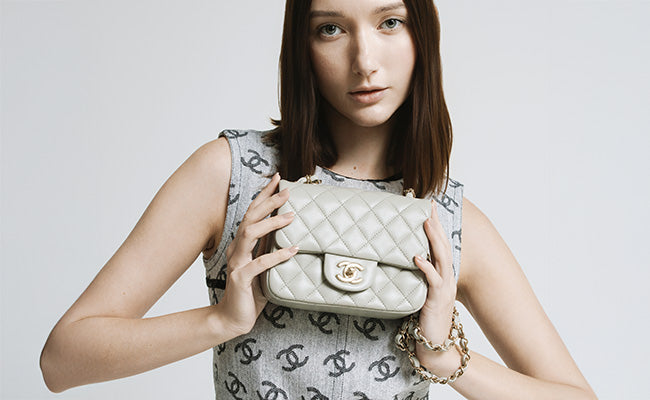
WeChat Pay, Alipay, UnionPay in Canada: A Luxury Shopper’s Guide
Check out our Hermès collection and Birkin bags!
Luxury shopping in Canada isn’t just about swiping a credit card anymore, especially if you’re chasing that elusive Birkin or indulging in designer splurges.
Chinese payment methods like WeChat Pay, Alipay, and UnionPay have become go-to tools for affluent shoppers, and these days, it’s pretty common to see them accepted at luxury retailers in major Canadian cities.
Alipay and WeChat Pay together control over 90% of China’s mobile payment market, and these platforms are popping up everywhere from Vancouver’s boutiques to Toronto’s high-end districts.
Their appeal goes beyond convenience. They’re packed with exclusive promos and higher spending limits that fit luxury shopping habits perfectly.
People who care about security and a polished user experience seem to gravitate toward these payment methods.
If you travel often or just like staying on top of financial tech trends, knowing how to use these systems can really upgrade your luxury shopping adventures in Canada.
Key Takeaways
- WeChat Pay, Alipay, and UnionPay are widely accepted at Canadian luxury retailers and support easy QR code payments
- These platforms unlock exclusive promotions and higher transaction limits for big-ticket purchases
- Canadian merchants attract wealthy international shoppers by accepting familiar payment methods
WeChat Pay, Alipay, and UnionPay: What Makes Them Essential for Luxury Shoppers?
Chinese consumers consistently rank among the world’s top luxury spenders, and these payment methods handle most of their digital transactions. If you get how these platforms work, you’re already halfway to understanding a customer base that spends an average of $2,900 per trip to Canada.
Understanding Why These Payment Methods Matter in Canada
Luxury shopping is shifting fast. WeChat Pay and Alipay together dominate China’s mobile payment scene, while UnionPay is the backbone of Chinese banking cards.
Honestly, asking a Chinese luxury shopper to use Visa is like asking us to swap our smartphones for old flip phones. These digital wallets are more than just payment tools. They’re lifestyle hubs.
WeChat Pay is built right into China’s super app, handling everything from messages to investments. Alipay serves over a billion users worldwide, bundling wealth management and travel booking right into the app.
UnionPay is different. It’s a card network like Visa or Mastercard, but with over 10 billion cards in use. It’s also adapted to QR code payments and contactless transactions.
For luxury retailers, offering these payment methods shows cultural awareness and a commitment to premium service. Chinese shoppers see payment compatibility as a sign of business sophistication and trust.
Growth of High-End Chinese Tourism
Chinese tourists spend more per capita in Canada than almost anyone else, over $2,900 per trip, according to Destination Canada. Their buying power is focused on luxury.
They often buy high-end items as gifts, investments, or status symbols. Most do their research before arriving and come with specific brands in mind.
Letting shoppers use their preferred digital wallets cuts down on transaction headaches. When luxury buyers can use WeChat Pay, Alipay, or UnionPay, conversion rates jump, sometimes by as much as 30%.
Vancouver, Toronto, and Banff see the highest adoption among luxury retailers. Boutiques, jewellery shops, and designer outlets have noticed real revenue boosts after rolling out these systems.
Affluent, tech-savvy shoppers expect smooth mobile payments. If their go-to options aren’t available, they’ll often walk away.
The Rise of Mobile and Digital Wallet Payments
In China, more than 90% of in-person transactions happen through mobile payments now. That’s a huge cultural shift, and luxury retailers in Canada can’t afford to ignore it.
Digital wallets deliver instant transactions, built-in currency conversion, and receipts in multiple languages. The user experience feels on par with premium banking.
Security is a big selling point. These platforms use biometrics, real-time fraud detection, and instant notifications, features many Chinese shoppers trust more than international cards.
Luxury brands can run mini-programs inside WeChat for special offers and loyalty perks, all targeted at high-value customers.
Shoppers pay in RMB, merchants get CAD. No currency confusion. Transaction fees are often as good or better than traditional card processing, especially for high-value sales.
WeChat Pay: Shopping with China's Super App in Canada
WeChat Pay makes luxury shopping easy with its QR code system, built right into China’s biggest social platform. More Canadian luxury retailers now accept it to cater to high-spending Chinese customers who want the same digital simplicity they’re used to back home.
Key Features for Luxury Shoppers
WeChat Pay lives inside the WeChat app, which has over 1.3 billion users. That means luxury shoppers get a familiar, trusted payment space.
It links straight to major Chinese banks like Bank of China and ICBC, allowing instant fund transfers, no credit cards or currency exchange hassles at checkout.
Mini-programs inside WeChat Pay let shoppers browse catalogues, book private appointments, and get personalized promos, all within the app.
The system supports multi-currency transactions with automatic conversion. In Canadian stores, merchants receive CAD while shoppers pay in RMB from their Chinese bank accounts.
How QR Code Payments Work with WeChat Pay
QR code payment is quick and painless. Just open WeChat, tap the payment function, and you’re good to go.
There are two main ways to pay at Canadian retailers:
- Merchant scan: Show your QR code for the cashier to scan
- Customer scan: Scan the merchant’s code at checkout
Transactions finish instantly, no PINs, no signatures. Both the shopper and merchant see confirmation right away.
Security features include encrypted transactions and real-time fraud checks. Every QR code is unique, so unauthorized use is nearly impossible.
Canadian Merchants Accepting WeChat Pay
7-Eleven was the first convenience chain in Canada to accept WeChat Pay, rolling it out in 35 Vancouver and Toronto locations. That move signaled a wider retail trend.
Luxury shops in tourist hotspots now integrate WeChat Pay:
| Location | Merchant Types |
|---|---|
| Vancouver | Luxury boutiques, jewellery stores, designer outlets |
| Toronto | High-end department stores, watch retailers, art galleries |
| Banff | Premium hotels, luxury goods shops, spa services |
Wine and liquor shops see particular benefits, offering premium tastings and gift packaging that appeal to luxury-minded Chinese visitors.
Modern payment services like AlphaPay help retailers add WeChat Pay to their existing POS setups, so stores don’t need to swap out their current terminals.
Alipay: The Digital Wallet of Choice for Affluent Travellers
Alipay draws in users with higher disposable incomes, making it a favorite for big-ticket purchases and luxury retail. Its robust financial ecosystem and smooth international card integration are especially attractive to affluent Chinese shoppers abroad.
Unique Alipay Services and Super-App Experience
Alipay isn’t just a payment app. It’s a full-fledged financial platform that wealthy travelers rely on. The app bundles investment tools, wealth tracking, and premium services you don’t get from most digital wallets.
It even lets you pay with your face using "Smile to Pay" tech. That kind of convenience and innovation hits the mark for luxury shoppers.
With over a billion users and 80 million merchants worldwide, Alipay’s reach is massive. Its financial management tools, portfolio tracking, currency exchange, premium banking, are essential for many affluent users.
Travel bookings, utility payments, and cross-border shopping are all built in. For wealthy Chinese travelers, Alipay is a one-stop shop, from booking first-class flights to buying designer goods in Canadian boutiques.
Exclusive Promotions and Integration for Luxury Retail
Canadian luxury retailers are catching on, now accepting Alipay at major destinations like West Edmonton Mall and Cadillac Fairview properties.
Alipay’s merchant platform has built-in marketing tools. Retailers can push exclusive offers, get featured in premium directories, and run geo-targeted campaigns aimed at high-spending travelers.
This direct connection to the right demographic pays off. Merchants see higher ROI and more repeat visits when they use Alipay’s marketing features alongside payment processing.
Biometric authentication keeps fraud almost nonexistent. Every transaction needs a PIN or biometric check, so luxury retailers deal with fewer disputes than with traditional credit cards.
Ease of Linking International Cards
Alipay now supports international Visa and Mastercard linking better than most other wallets. Foreign visitors can connect their premium cards right to Alipay, no Chinese bank account required.
Setup is pretty straightforward: just a passport, phone number, and international card. Many users say Alipay’s international card linking is smoother than other Chinese platforms.
Currency conversion is automatic. You pay in RMB from your digital wallet, merchants get CAD. No need to juggle currencies or payment methods.
Settlement is usually quicker than old-school international processing. For affluent travelers, that’s a big plus. They expect things to just work, especially when making luxury purchases.
UnionPay in Canada: Going Beyond Just Cards
UnionPay gives Canadian luxury retailers more than just card swipes. With contactless QuickPass and smooth integration with Chinese mobile wallets, it creates the kind of frictionless shopping experience high-spending customers want.
UnionPay QR Code and QuickPass for Seamless Shopping
QuickPass changes the game for luxury transactions in Canada. Just tap your UnionPay card, no PINs, no signatures.
If you’re dropping thousands on a Hermès bag, QuickPass means no awkward fumbling at the counter. Most modern payment terminals in luxury shops support it.
QR code payments are another perk. Scan the merchant’s code with your UnionPay app, and you’re done. Tech-savvy luxury shoppers love this mobile-first approach.
Retailers see faster checkouts and happier customers when they offer both QuickPass and QR options. The smooth payment flow matches the high expectations of luxury buyers.
Where UnionPay Shines in the Luxury Sector
UnionPay is huge in Canada’s luxury retail, especially with Chinese tourists and residents making big purchases. Watch boutiques, designer stores, and jewellery retailers all see strong UnionPay transaction volumes.
Key sectors using UnionPay:
- Designer fashion (Chanel, Dior, Louis Vuitton)
- High-end watch shops (Rolex, Patek Philippe)
- Luxury department stores (Holt Renfrew, Harry Rosen)
- Premium jewellery boutiques
Chinese shoppers prefer familiar brands when buying abroad, so UnionPay’s popularity isn’t surprising.
Many luxury retailers now display UnionPay logos at the entrance, a small thing, but it signals that they get what their high-value customers want.
UnionPay Card Integration with WeChat Pay and Alipay
UnionPay cards issued overseas now link directly with WeChat Pay and Alipay. That’s a big deal for flexible payments in Canada’s luxury scene.
How it works:
- Download WeChat Pay or Alipay
- Link your UnionPay card (even if issued outside China)
- Use QR code payments just like local users
Luxury retailers benefit because shoppers can stick to their favorite mobile apps while using their existing UnionPay cards.
During certain promos, overseas UnionPay cards sometimes waive transaction fees on these platforms, a nice bonus for big spenders.
Integration works for both online and in-store shopping. Whether you’re buying a handbag in person or ordering luxury goods online, the payment experience stays consistent.
Comparing WeChat Pay, Alipay, and UnionPay to Western Payment Options
Chinese payment systems don’t work the same way as Western ones like Visa or Mastercard. Knowing the differences helps luxury retailers serve international customers better.
Visa, Mastercard, and PayPal Versus the Chinese Giants
Western payment methods are basically credit networks. When you use Visa or Mastercard, you’re borrowing money to pay back later.
WeChat Pay and Alipay connect right to your bank account or wallet balance. Payments happen instantly, no credit checks or approvals.
Main differences:
- Transaction Speed: Chinese payments are immediate; credit cards take 2-3 business days
- User Experience: QR scanning vs. chip-and-pin or tap-to-pay
- Market Penetration: Over 90% of Chinese consumers use mobile payments; in Canada, it’s only about 28%
PayPal isn’t really an option for Chinese shoppers due to restrictions. UnionPay works worldwide, but most Chinese users prefer the convenience of mobile wallets.
For luxury purchases, Chinese payment methods offer higher limits and skip the currency conversion headaches that can turn off international shoppers.
Apple Pay and Google Pay: Compatibility and Limitations
Apple Pay and Google Pay have made waves in Western markets, but Chinese users hit a wall with these services. Both require linking to Visa, Mastercard, or domestic bank cards, a hassle if your wallet's full of Chinese cards.
For Chinese travelers, adding domestic bank cards to Apple Pay is tricky. Google services? Still blocked in mainland China, so most Chinese folks don't even recognize Google Pay.
Technical Barriers:
- Apple Pay only works with certain Chinese banks (not many)
- Google Pay doesn't run on Chinese Android devices
- Both need more setup than Chinese-native apps
WeChat Pay and Alipay usually come pre-installed on Chinese phones. Chinese visitors show up in Canada with their favorite payment apps already set up and ready.
This gap at checkout can be a headache, especially for luxury shoppers dropping $5,000 or more on a Hermès bag. Who wants a payment snag in the middle of a splurge?
Why Top Spend Shoppers Prefer Familiar Payment Methods
Chinese tourists rank among Canada's top spenders, averaging over $2,900 per trip (thanks, Destination Canada). They stick to familiar payment methods for a reason.
Luxury purchases mean big money, and payment security becomes a top concern. WeChat Pay and Alipay win out over foreign payment options in terms of trust.
Spending Pattern Benefits:
- Higher average transaction values when shoppers can use familiar payments
- Less cart abandonment at checkout
- More repeat visits to shops that support their preferred methods
When payment feels easy and familiar, shoppers can focus on picking out what they want, not on how to pay for it.
WeChat Pay and Alipay also send instant confirmations in Chinese. That peace of mind matters, especially after dropping serious cash.
How to Use Chinese Mobile Payments in Canada: A Walkthrough for the Well-Heeled
Getting WeChat Pay, Alipay, and UnionPay running in Canada means linking international cards and understanding cross-border fees. These QR code systems work smoothly at luxury retailers who accept them, though currency conversion costs pop up for bigger transactions.
Opening and Linking Accounts (Even with International Cards)
WeChat Pay setup starts with downloading the WeChat app from Canadian app stores. Register with your Canadian phone number, then tap "Me" > "Pay and Services" > "Wallet" to get to payment features.
Adding an international Visa or Mastercard is pretty simple. Tap "Add a Bank Card" in the Bank Cards section and punch in your Canadian card info. Your legal name needs to match the card exactly.
Alipay is a standalone app. Download, register with your phone or email, then verify your identity under "Account" > "Settings" > "Account and Security" > "Identity Information."
Link Canadian cards by going to "Account" > "Bank Cards" and hitting the "+" icon. Sometimes, the app asks for face verification for extra security.
UnionPay often works through Canadian bank partnerships. Many banks here already support UnionPay, so setup is usually less of a headache for luxury purchases.
Understanding Fees, Security, and Currency Conversions
Cross-border payment platforms all have their own fee quirks. WeChat Pay skips foreign transaction fees for purchases under 200 RMB (about $40 CAD). Go over that, and you'll usually pay a 3% fee.
Alipay has similar international card fees. Currency conversion happens automatically at rates that are usually pretty fair, but your Canadian bank might tack on extra foreign transaction fees.
These payment apps encrypt your card info. Still, it's smart to check your Canadian bank statements for any weird charges from currency conversions.
Security features include biometrics and custom transaction limits you can set in-app. Two-factor authentication adds a layer of protection for big-ticket items.
The apps store your payment info on your phone, not with the retailer, during QR code transactions.
Tips for Effortless, Contactless Luxury Transactions
QR code payments work two ways at luxury shops: you scan the shop's code at checkout, or show your code for them to scan.
Places like Holt Renfrew and fancy boutiques usually have dedicated QR codes for each platform. Watch for green WeChat codes and blue Alipay ones.
For contactless transactions, have both apps ready, some stores only take one. Keep your phone charged and make sure you have a solid signal for smooth payments.
Pre-loading verification can save you time. Finish identity checks and link your cards before you shop, so you don't get stuck at checkout.
Lots of high-end stores run special deals for mobile payment users. Sometimes, you’ll find exclusive discounts or cashback offers on luxury goods, perks you won't get with a regular credit card.
Frequently Asked Questions
How can I seamlessly use WeChat Pay for shopping at high-end boutiques in Toronto?
Most luxury stores in Toronto's Yorkville and Bloor Street West accept WeChat Pay using QR codes. Just link your UnionPay card to WeChat Pay, or keep a preloaded balance in your wallet.
Open WeChat and hit "Pay" at checkout. Either scan the merchant's code, or show your code for them to scan.
High-end shops in the Eaton Centre and luxury hotels usually have staff who know how these payments work. Your transaction goes through right away, and you get a confirmation in the app.
Are there any perks to using Alipay over other payment methods when splurging on designer goods?
Alipay dishes out exclusive promos and cashback for international shoppers. Some luxury stores give 5-15% discounts when you use Alipay during special events.
The app often partners with big-name brands and department stores, so you might catch limited-time rewards or gift-with-purchase deals.
Alipay’s currency conversion rates are usually pretty solid. That can mean savings compared to the 2.5-3% foreign exchange fees most credit cards charge.
What's the process for getting tax refunds on luxury purchases in Canada with UnionPay?
Tax refunds through the Tourist Refund Program work the same no matter how you pay. Keep your original UnionPay receipts and make sure your purchases meet the $200 CAD per store minimum.
Show your purchases and receipts at a refund location before you leave Canada. They can refund directly to your UnionPay card, or sometimes offer cash.
Processing times range from instant cash to 30-60 days for card refunds. Hang onto all UnionPay confirmations as backup.
Can I snag exclusive deals at luxury stores in Canada by paying with my UnionPay card?
Plenty of luxury retailers run UnionPay promos, especially during big shopping seasons like Chinese New Year or Golden Week. Discounts often hit 10-20% or include exclusive gift sets.
Major department stores like Holt Renfrew and The Bay run UnionPay campaigns pretty regularly. Look for signs in-store or just ask staff what’s on offer.
Some luxury hotels and boutiques throw in VIP shopping or complimentary services when you pay with UnionPay, think personal shoppers or early access to new collections.
Will I face any transaction limits while using WeChat Pay or Alipay during my luxury shopping spree in Vancouver?
Daily limits depend on your account verification and funding source. Fully verified accounts usually let you spend $10,000-$50,000 CAD per day, enough for most luxury buys.
Single transactions often cap at $5,000-$10,000 CAD. For something like a Hermès Birkin or a Rolex, you might need to split payments across transactions or days.
Your bank or card limits still apply, too. If you're planning a big spree, consider calling your provider ahead of time to avoid surprises.
How does the currency conversion work when using Chinese payment apps for purchasing posh items in Canadian shops?
Currency conversion kicks in automatically at checkout, using whatever the real-time exchange rate happens to be. The price shows up in Canadian dollars, but the app charges you in Chinese yuan, calculated right then and there.
These apps usually offer pretty decent rates, sometimes even better than what you'd get with a regular credit card. Before you hit pay, you’ll see exactly how much you’ll spend in yuan, so you won’t get blindsided by weird fees or mystery charges.
Now, exchange rates can wiggle around a bit, so the final amount might not always match what you saw at first. Most payment apps lock in the rate the second you confirm the purchase, which is a relief if you’re worried about last-minute changes.




